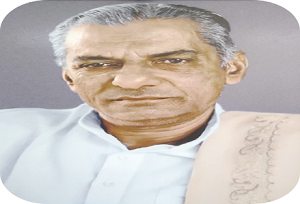Vision
"The department strives to equip our graduates with Knowledge and Skills to contribute significantly to Information Science & Engineering and enhance quality research for the benefit of society".
Mission
- M1: To provide students with state of art facilities and tools of Information Science & Engineering to become productive, global citizens and life-long learners.
- M2: To prepare students for careers in IT industry, Higher education and Research.
- M3: To inculcate leadership qualities among students to make them competent Information Science & Engineering professionals or entrepreneurs.
Program Educational Objectives (PEOs)
Graduates of the program will be able to
PEO1: Establish a productive Information Science & Engineering career in industry, government or academia.
PEO2: Interact with their peers in other disciplines by exhibiting professionalism and team work to contribute to the economic growth of the country.
PEO3: Promote the development of innovative systems and solutions to the problems in Information Science using hardware and software integration.
PEO4: Pursue higher studies in Engineering, Management or Research.
Program Outcomes (POs)
Engineering Graduates will be able to:
- PO1 : Engineering knowledge: Apply the knowledge of mathematics, science, engineering fundamentals, and an engineering specialization to the solution of complex engineering problems.
- PO2 : Problem analysis: Identify, formulate, review research literature, and analyze complex engineering problems reaching substantiated conclusions using first principles of mathematics, natural sciences, and engineering sciences.
- PO3 : Design/development of solutions: Design solutions for complex engineering problems and design system components or processes that meet the specified needs with appropriate consideration for the public health and safety, and the cultural, societal, and environmental considerations.
- PO4 : Conduct investigations of complex problems: Use research-based knowledge and research methods including design of experiments, analysis and interpretation of data, and synthesis of the information to provide valid conclusions.
- PO5 : Modern tool usage: Create, select, and apply appropriate techniques, resources, and modern engineering and IT tools including prediction and modeling to complex engineering activities with an understanding of the limitations.
- PO6 : The engineer and society: Apply reasoning informed by the contextual knowledge to assess societal, health, safety, legal and cultural issues and the consequent responsibilities relevant to the professional engineering practice.
- PO7 : Environment and sustainability: Understand the impact of the professional engineering solutions in societal and environmental contexts, and demonstrate the knowledge of, and need for sustainable development.
- PO8 : Ethics: Apply ethical principles and commit to professional ethics and responsibilities and norms of the engineering practice.
- PO9 : Individual and team work: Function effectively as an individual, and as a member or leader in diverse teams, and in multidisciplinary settings.
- PO10 : Communication: Communicate effectively on complex engineering activities with the engineering community and with society at large, such as, being able to comprehend and write effective reports and design documentation, make effective presentations, and give and receive clear instructions.
- PO11. Project management and finance: Demonstrate knowledge and understanding of the engineering and management principles and apply these to one's own work, as a member and leader in a team, to manage projects and in multidisciplinary environments.
- PO12 : Life-long learning: Recognize the need for, and have the preparation and ability to engage in independent and life-long learning in the broadest context of technological change.
Program Specific Outcomes (PSOs)
Information Science & Engineering Graduates will be able to:
- PSO1: Analyze, design, develop and test the principles of System software and Database concepts for computer-based systems.
- PSO2: Develop computer communication systems and applications for Information security.
- PSO3:Apply the knowledge of Information Science and Engineering to solve any software and hardware related problems and to organize, manage and monitor IT Infrastructure.
